Filter by

Complexity in second language study emotions: emergent sensemaking in social …
The emotionality of additional language learning -- From simplicity to complexity: recent explorations of L2 study emotions -- Interactions between the whole and parts in the emergence of L2 study feelings -- Focusing a small lens on experiential and discursive
- Edition
- -
- ISBN/ISSN
- 9781003306955
- Collation
- -
- Series Title
- -
- Call Number
- -
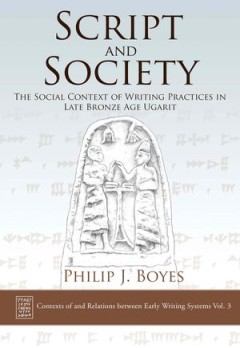
Script and Society the Social Context of Writing Practices in Late Bronze Age…
By the 13th century BC, the Syrian city of Ugarit hosted an extremely diverse range of writing practices. As well as two main scripts – alphabetic and logographic cuneiform - the site has also produced inscriptions in a wide range of scripts and languages, including Hurrian, Sumerian, Hittite, Egyptian hieroglyphs, Luwian hieroglyphs and Cypro-Minoan. This variety in script and language is ac…
- Edition
- -
- ISBN/ISSN
- 9781789255867
- Collation
- -
- Series Title
- -
- Call Number
- -
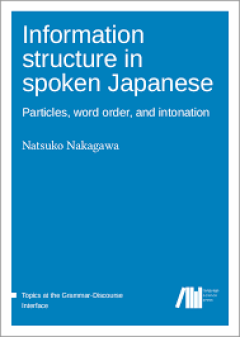
Information structure in spoken Japanese Particles, word order, and intonation
This study explores information structure (IS) within the framework of corpus linguistics and functional linguistics. As a case study, it investigates IS phenomena in spoken Japanese: particles including so-called topic particles, case particles, and zero particles; word order; and intonation. The study discusses how these phenomena are related to cognitive and communicative mechanisms of humans.
- Edition
- -
- ISBN/ISSN
- 9783961101382
- Collation
- -
- Series Title
- -
- Call Number
- -
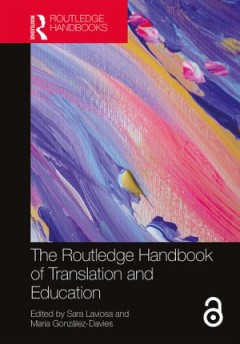
The Routledge Handbook of Translation and Education
The Routledge Handbook of Translation and Education will present the state of the art of the place and role of translation in educational contexts worldwide. It lays a sound foundation for the future interdisciplinary cooperation between Translation Studies and Educational Linguistics. By adopting a transdisciplinary perspective, the handbook will bring together the various fields of scholarly …
- Edition
- -
- ISBN/ISSN
- 9781000739947
- Collation
- 470 halaman
- Series Title
- -
- Call Number
- 400 ROU
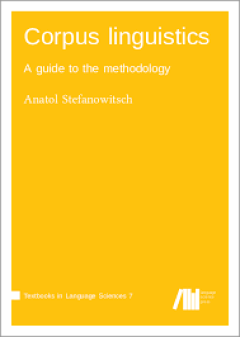
Corpus linguistics A guide to the methodology
Corpora are widely used in linguistics, but not always wisely. This book attempts to frame corpus linguistics systematically as a variant of the observational method. The first part introduces the reader to the general methodological discussions surrounding corpus data as well as the practice of doing corpus linguistics, including issues such as the scientific research cycle, research design, e…
- Edition
- -
- ISBN/ISSN
- 9783961102242
- Collation
- -
- Series Title
- -
- Call Number
- -
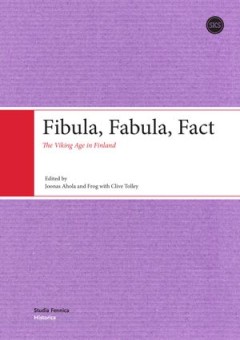
Fibula, Fabula, Fact
The chapters of Fibula, Fabula, Fact – The Viking Age in Finland are intended to provide essential foundations for approaching the important topic of the Viking Age in Finland. These chapters are oriented to provide introductions to the sources, methods and perspectives of diverse disciplines in a way that is accessible to specialists from other fields, specialists from outside Finland, and a…
- Edition
- Vol. 18.0
- ISBN/ISSN
- 9789522227645
- Collation
- -
- Series Title
- -
- Call Number
- 418 FIB f
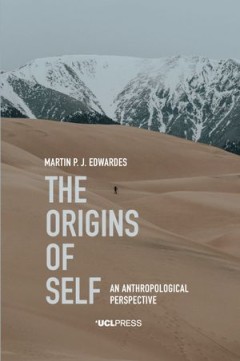
The Origins of Self
The Origins of Self explores the role that selfhood plays in defining human society, and each human individual in that society. It considers the genetic and cultural origins of self, the role that self plays in socialisation and language, and the types of self we generate in our individual journeys to and through adulthood. Edwardes argues that other awareness is a relatively early evolutionary…
- Edition
- -
- ISBN/ISSN
- 9781787356306
- Collation
- -
- Series Title
- -
- Call Number
- 401.9 EDW o

Agreement Beyond Phi
An argument that agreement and agreementless languages are unified under an expanded view of grammatical features including both phi-features and certain discourse configurational features. Much attention in theoretical linguistics in the generative and Minimalist traditions is concerned with issues directly or indirectly related to movement. The EPP (extended projection principle), introduced …
- Edition
- -
- ISBN/ISSN
- 9780262035880
- Collation
- -
- Series Title
- -
- Call Number
- 400 MIY a
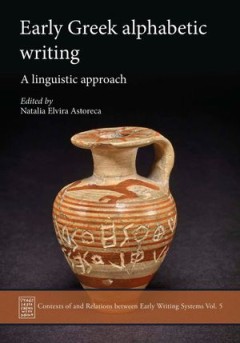
Early Greek Alphabetic Writing : A Linguistic Approach
Despite the flourishing of epichoric studies on the Archaic Greek scripts in the 1960s, embodied by archaeologists Lilian Hamilton Jeffery and Margherita Guarducci, most scholarship on early alphabetic writing in Greece has focused on questions around the origin of ‘the Greek alphabet’ instead of acknowledging the diversity of alphabetic systems that emerged in Geometric and Archaic times. …
- Edition
- -
- ISBN/ISSN
- 9780000000845
- Collation
- -
- Series Title
- -
- Call Number
- 411 AST e
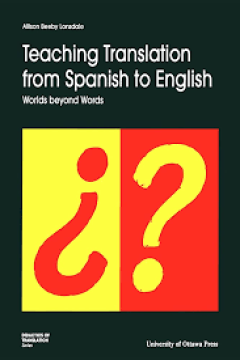
Teaching Translation from Spanish to English : Worlds Beyond Words
While many professional translators believe the ability to translate is a gift that one either has or does not have, Allison Beeby Lonsdale questions this view. In her innovative book, she demonstrates how teachers can guide their students by showing them how insights from communication theory, discourse analysis, pragmatics, and semiotics can illuminate the translation process. Using Spanish t…
- Edition
- -
- ISBN/ISSN
- 9780776603995
- Collation
- -
- Series Title
- Didactics of Translation
- Call Number
- 400 BEE t
 Computer Science, Information & General Works
Computer Science, Information & General Works  Philosophy & Psychology
Philosophy & Psychology  Religion
Religion  Social Sciences
Social Sciences  Language
Language  Pure Science
Pure Science  Applied Sciences
Applied Sciences  Art & Recreation
Art & Recreation  Literature
Literature  History & Geography
History & Geography